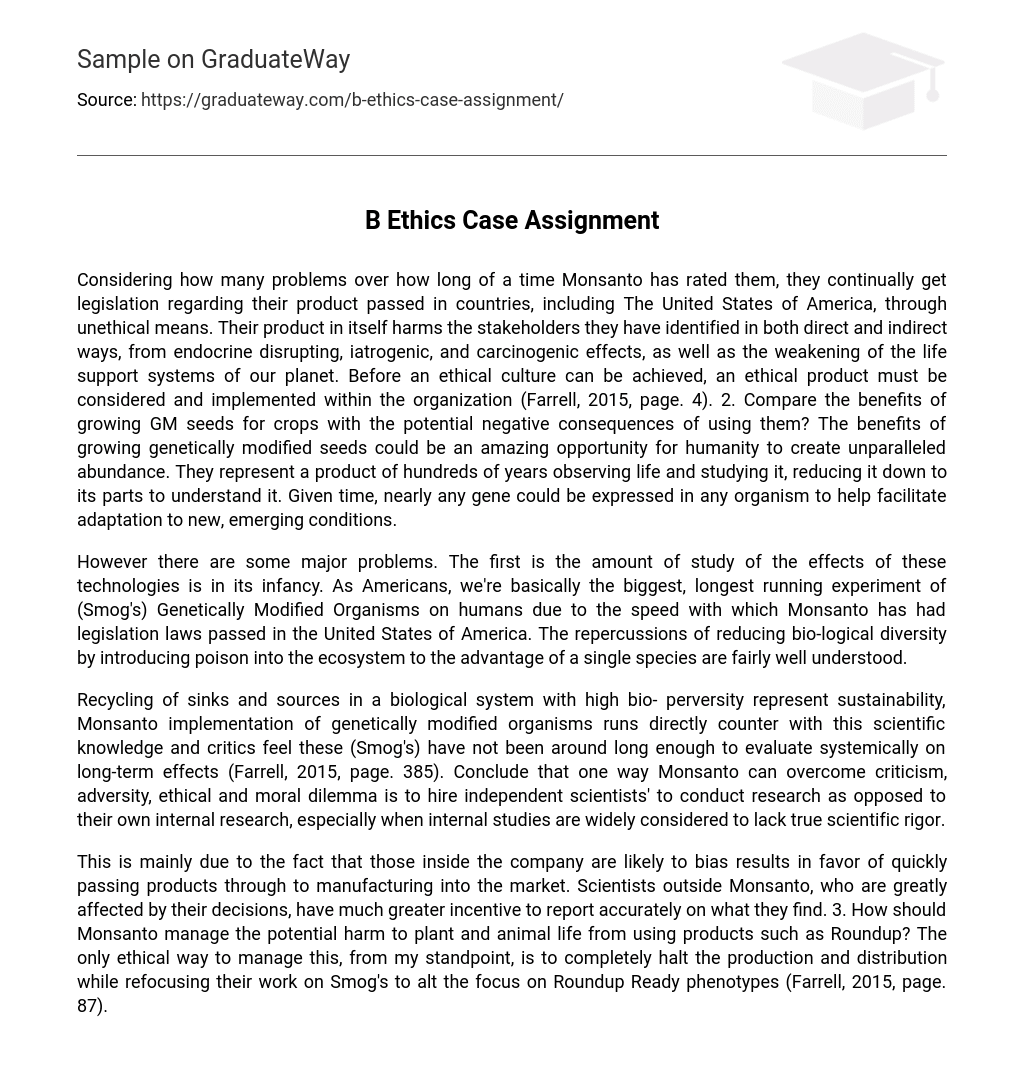Considering how many problems over how long of a time Monsanto has rated them, they continually get legislation regarding their product passed in countries, including The United States of America, through unethical means. Their product in itself harms the stakeholders they have identified in both direct and indirect ways, from endocrine disrupting, iatrogenic, and carcinogenic effects, as well as the weakening of the life support systems of our planet. Before an ethical culture can be achieved, an ethical product must be considered and implemented within the organization (Farrell, 2015, page. 4). 2. Compare the benefits of growing GM seeds for crops with the potential negative consequences of using them? The benefits of growing genetically modified seeds could be an amazing opportunity for humanity to create unparalleled abundance. They represent a product of hundreds of years observing life and studying it, reducing it down to its parts to understand it. Given time, nearly any gene could be expressed in any organism to help facilitate adaptation to new, emerging conditions.
However there are some major problems. The first is the amount of study of the effects of these technologies is in its infancy. As Americans, we’re basically the biggest, longest running experiment of (Smog’s) Genetically Modified Organisms on humans due to the speed with which Monsanto has had legislation laws passed in the United States of America. The repercussions of reducing bio-logical diversity by introducing poison into the ecosystem to the advantage of a single species are fairly well understood.
Recycling of sinks and sources in a biological system with high bio- perversity represent sustainability, Monsanto implementation of genetically modified organisms runs directly counter with this scientific knowledge and critics feel these (Smog’s) have not been around long enough to evaluate systemically on long-term effects (Farrell, 2015, page. 385). Conclude that one way Monsanto can overcome criticism, adversity, ethical and moral dilemma is to hire independent scientists’ to conduct research as opposed to their own internal research, especially when internal studies are widely considered to lack true scientific rigor.
This is mainly due to the fact that those inside the company are likely to bias results in favor of quickly passing products through to manufacturing into the market. Scientists outside Monsanto, who are greatly affected by their decisions, have much greater incentive to report accurately on what they find. 3. How should Monsanto manage the potential harm to plant and animal life from using products such as Roundup? The only ethical way to manage this, from my standpoint, is to completely halt the production and distribution while refocusing their work on Smog’s to alt the focus on Roundup Ready phenotypes (Farrell, 2015, page. 87).





